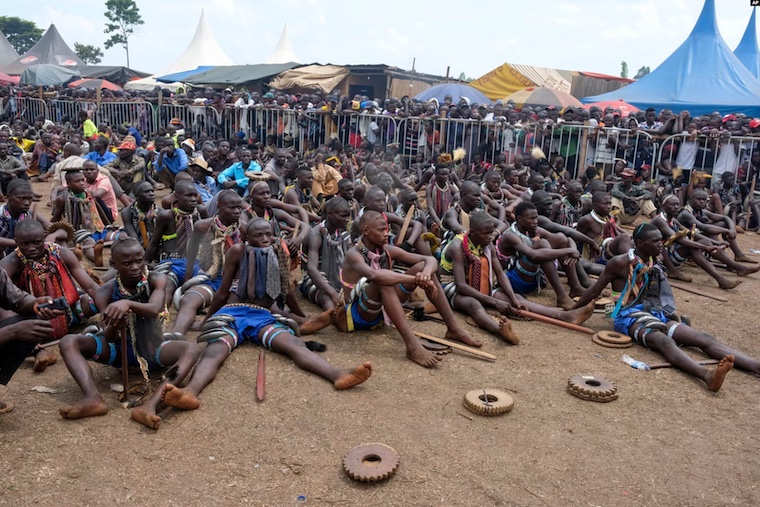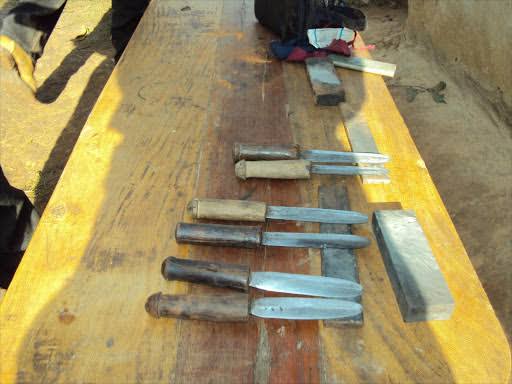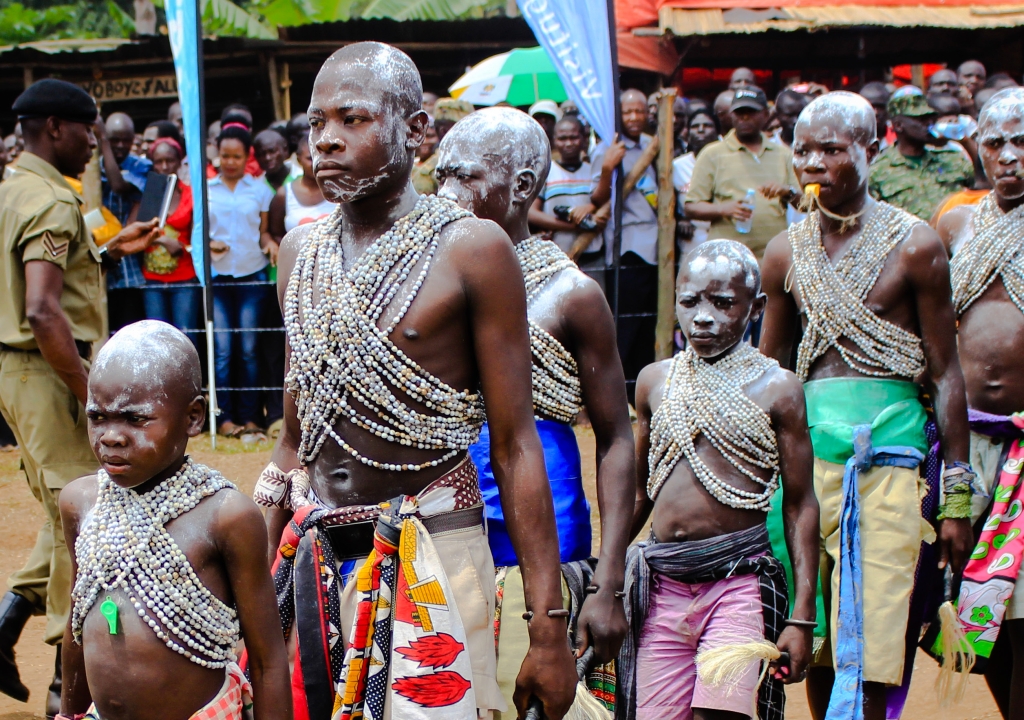In Uganda’s mountainous eastern region, the vibrant Imbalu ceremony, a traditional mass circumcision of the Bamasaaba people, began with energetic dances and drumming. Yet, beneath the festive surface, tensions simmer regarding the future of this sacred rite.
Locals have raised concerns with their king, the Umukuuka, about whether Imbalu should evolve into a tourist attraction or remain a private, deeply spiritual event. The biannual ritual, which takes place near Uganda’s border with Kenya, has become a focal point of this debate.

Ahead of the August 3rd inauguration in Mbale, the king supported a fusion of tradition and tourism. With substantial funding from the Ugandan government and corporate sponsors amounting to over Shs 440 million (around $120,000), the aim is to transform Imbalu into both a cultural festival and a tourist draw.
The Umukuuka defended the modernization of Imbalu, citing population growth and economic challenges that complicate adherence to traditional practices. He emphasized the need to adapt the ritual in alignment with Uganda’s national development strategy while striving to preserve its essence through the clan system.
Government Intervention in Imbalu Ceremony Sparks Controversy
However, this intervention has sparked significant backlash among the Bamasaaba, a community of 4 million. Critics argue that the Umukuuka, in his first year of leadership, is undermining the ceremony’s integrity by introducing external influences.

Elder Wasukira Mashate expressed frustration, accusing the Umukuuka of sidelining traditional leaders and turning a sacred event into a government-controlled spectacle. “Our cultural leadership is being overshadowed by political agendas,” Mashate asserted, criticizing the deviation from traditional practices.
Tensions flared during the inauguration, especially regarding the sacrificial animal. Locals protested the use of a mixed-breed bull instead of a traditional local breed, leading to delays and heightened unrest. Despite the chaos, the Umukuuka remained steadfast, with the mass circumcisions expected to continue through the end of 2024.
The Tradition’s Enduring Significance
The tribal initiation of boys into manhood, like the Bamasaaba’s Imbalu, remains contentious across Africa. In South Africa, calls for safer medical procedures highlight issues with circumcision practices, yet the Bamasaaba continue to uphold their traditional methods.
Imbalu, performed by traditional surgeons with knives made from repurposed nails, is seen as crucial by the Bamasaaba, contrasting with hospital circumcisions for infants. They believe that missing traditional initiation can lead to social challenges. In Kampala, some Bamasaaba enforce the ritual by force, and uncircumcised bodies may face desecration before burial.

A traditional surgeon emphasized the practice’s importance, stating, “It helps us to be strong,” and explained that resistance to circumcision results in the ritual being performed regardless. He stressed, “We cannot bury someone in Bamasaaba land without circumcision; it is considered a curse.”
Bamasaaba Defend Imbalu Amid Modernization
A traditional circumcision surgeon from a hillside home dedicated days to isolation and abstinence to connect with the spirit of Imbalu, the Bamasaaba people’s ritual. Despite their official certifications, these surgeons emphasize the spiritual strength required for the ritual.
This year’s Imbalu involved a teenager whose face was smeared with mud and homemade beer. Surrounded by an eager crowd, the surgeon performed the circumcision swiftly and without anesthesia, while a family member collected the excised skin to ward off witchcraft.
A parent of one of the initiates defended the ritual but criticized the “carnival-like” atmosphere created by drunken revelers and political candidates, which they felt overshadowed the ceremony’s cultural significance. The parent also questioned the Ugandan government’s role, seeing it as diminishing the chief organizer’s position.

The chair of the Imbalu organizing committee defended the government’s involvement, calling it a supportive gesture for Bamasaaba culture. They argued that the vibrant celebrations aimed to share and celebrate their heritage.
Acknowledging past criticisms of Imbalu as brutal, the chair stated, “We are not barbaric. We aim to present this tradition in an engaging and respectful manner.”

